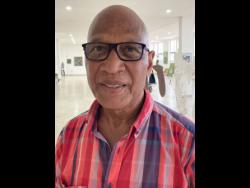
How embarrassing to watch King Charles and Sir Keir Starmer navigate hoops to avoid a formal apology for the enslavement of Africans at the 2024 Commonwealth Heads of Government Meeting (CHOGM), held in Apia, Samoa, on October 25-26. King Charles was especially cautious about making any mention of the subject in his speech, having being warned by Boris Johnson at the 2022 CHOGM: “I’d be careful, or you’ll end up having to sell the Duchy of Cornwall to pay reparations for those who built it.”
Foreign Secretary David Lammy was also strangely silent leading up to and at the meeting in Samoa yet somehow found his voice during a subsequent visit to Nigeria, where on November 4, he declared that reparations was “not about the transfer of cash, particularly at a time of a cost-of-living crisis around much of the globe and certainly in the UK”.
Maybe the chancellor, Rachel Reeves – who adamantly told the BBC “We’re not going to be paying out the reparations …” had briefed Lammy before his trip to Africa. He should have reminded her that Britain took out a loan for £20 million to pay the enslavers for their loss of “property”. He could have explained that CARICOM leaders are reasonable people, so they are calling for a “discussion” about how reparations can be paid. He would have done better while on the African continent to consider Sankofa, a concept representing the need to reflect on the past to build a successful future.
CHOGM ended with a declaration calling for a “respectful conversation”. It remains to be seen how the UK government will respond. Lammy, when occupying the back benches of Parliament in 2018, boldly said: “As Caribbean people, we are not going to forget our history. We don’t just want an apology. We want reparations!” Now that he sits on the front benches, his tune has changed to chime with Starmer’s “reparations is not about cash”.
This is a betrayal by Lammy of the heritage he was so keen to talk about, but we might have seen it coming when he signalled in an interview with The Guardian that he was more concerned with issues of the day “such as war, humanitarian crisis, and the climate emergency rather than revisiting the conflicts of the past”. Not unlike Prime Minister Sir Keir preferring to roll up his sleeves and work “on the current future-facing challenges than spend a lot of time on the past”.
Tellingly, Number 10 confirms that Starmer has no specific race adviser – indicative of the importance placed on race and equality by a party that treated MP Diana Abbott so appallingly before this year’s general election. Maybe it is time for Starmer to dig out the Martin Forde KC report on racism in the Labour Party and make use of it.
This burying-head-in-sand attitude is unsustainable. The British establishment will have to confront its past sooner rather than later and the government must set a timetable for discussions with Caricom leaders. Slavery did not end because the owning classes suddenly found their moral compass. No, the enslaved, by their continuous rebellions in the Americas, made it very expensive to maintain the system, and this, combined with the anti-slavery movement, finally put paid to the system.
So why is an apology so difficult for the government? Former national security adviser Mark Lyall Grant, in an interview in the Daily Mail, warned that apologising could leave the UK open to further financial demands. The former Navy chief Lord West, who served as security adviser in the last Labour government said: “Britain should be immensely proud that we lost 10,000 sailors stopping the slave trade. We should be bloody proud. I would encourage the prime minister to stand firm on the issue. Perhaps British soldiers should be honoured for their contribution to stopping slavery instead.”
Many of us beg to differ. In a letter to The Guardian, Dr Richard Carter wrote: “ … there is the fact that we actually dominated it for the two and a half centuries before abolition. As our own parliament’s heritage collections point out: ‘British involvement in the transatlantic slave trade began in 1562, and by the 1730s, Britain was the world’s biggest slave-trading nation. The triangular route … was highly lucrative. London was the financial heart of the system.’ Not much to be proud of there.”
Luke Daniels is president of Caribbean Labour Solidarity ,which promotes equality, democracy, justice, and social progress in the Caribbean. He is also author of the book ‘Pulling the Punches, Defeating Domestic Violence’.

